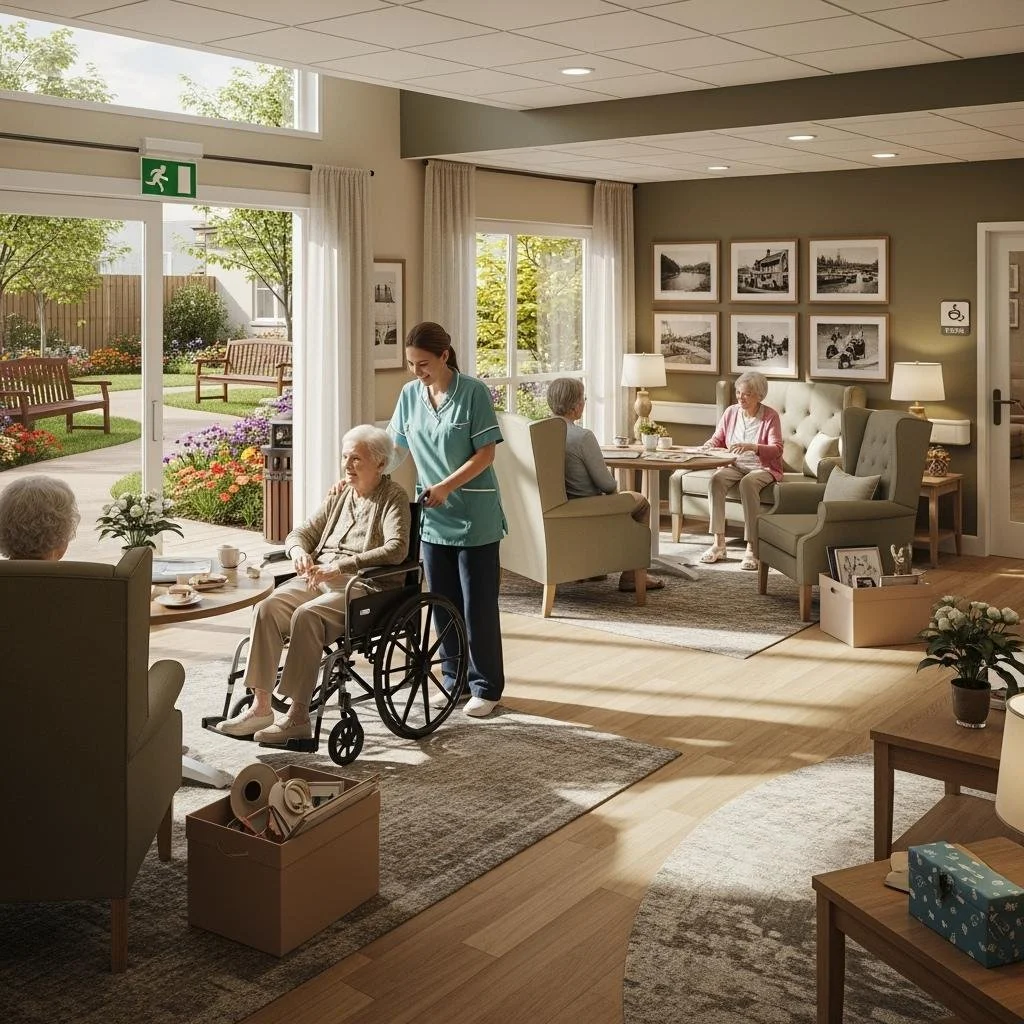How To Choose The Best Memory Care For Your Loved One
Watching a loved one struggle with memory loss can be emotional and overwhelming. You may notice them forgetting names, misplacing items, or having difficulty with daily tasks. These changes can raise serious concerns about their safety, well-being, and quality of life. As their needs evolve, finding the right memory care facility becomes an important—and often urgent—decision.
Choosing memory care is not just about selecting a facility; it's about finding a place where your loved one will feel safe, respected, and truly understood. With so many options available, it’s easy to feel confused or unsure about what to prioritize.
In this guide, we’ll help you navigate the process with clarity and compassion. From understanding what memory care truly involves to identifying the features that matter most—such as personalized support, safety, and therapeutic activities—you’ll gain the knowledge you need to make a confident, informed decision.
No. 1
Know What Memory Care Really Means
Memory care is a specialized form of long-term care designed for individuals with memory impairments, including Alzheimer’s disease and other types of dementia. These facilities are structured to support residents in a secure, calming environment tailored to their cognitive and emotional needs.
Staff in memory care communities are trained to manage memory-related conditions and behavioral changes with patience and empathy. Services typically include assistance with daily activities such as bathing, dressing, meals, and medication management.
Beyond physical care, quality memory care also focuses on emotional and mental well-being. The goal is to help residents maintain a sense of routine, reduce anxiety, and experience moments of joy and connection. A supportive environment can make a significant difference in how individuals with memory loss experience each day.
No. 2
Look for Personalized Support Every Day
No two people experience memory loss in the same way. That’s why personalized care is essential. A high-quality memory care facility will take the time to learn about your loved one’s personal history, preferences, routines, and triggers.
This individualized approach allows staff to provide consistent, compassionate care that reduces confusion and builds trust. For example, knowing a resident’s favorite song or preferred meal can help soothe them during moments of agitation.
Personalized support also ensures that care plans are adjusted as needs change over time. When your loved one feels seen and understood, they are more likely to feel comfortable, safe, and emotionally secure.
No. 3
Make Sure the Place Feels Safe and Secure
Safety is a top priority when choosing memory care. Individuals with dementia may be prone to wandering, disorientation, or accidents. The best facilities are designed with these risks in mind, incorporating features such as secured entrances, monitored hallways, and soft lighting to reduce confusion.
However, safety should never come at the expense of comfort. A well-designed memory care community strikes a balance between protection and freedom. Residents should be able to move around freely within secure areas and enjoy a sense of independence.
Staff should be attentive and proactive, regularly checking in on residents while maintaining a warm and respectful atmosphere. When the environment feels calm and secure, it helps reduce anxiety and promotes a better quality of life.
Headspace
Discover tools for peace of mind with Headspace. Tailored mindfulness and meditation tools designed to support individuals with dementia and Alzheimer’s, fostering calm, focus, and connection.
No. 4
Choose a Place That Offers Activities That Heal
Engaging activities are a vital part of memory care. Therapeutic programs help stimulate the brain, boost mood, and foster social connections. Look for facilities that offer a variety of activities such as music therapy, art classes, light exercise, or memory games.
Some communities go beyond the basics by including gardening, cooking sessions, or pet therapy. These activities can spark joy, evoke positive memories, and give residents a sense of purpose.
Meaningful engagement is just as important as medical care. It contributes to emotional well-being, reduces feelings of isolation, and can even slow cognitive decline. Compassionate memory care for seniors includes a blend of therapy, recreation, and social interaction that makes each day more fulfilling.
No. 5
Your Smart Choice Can Bring Peace of Mind
Finding the right memory care facility may feel daunting at first, but it becomes easier when you know what to look for. Focus on communities that offer personalized care, a secure and comforting environment, and enriching daily activities.
Observe how staff interact with residents. Are they patient, kind, and attentive? Ask how they handle difficult behaviors or emotional days. Trust your instincts—if a place feels warm and welcoming, it likely reflects the care your loved one will receive.
The right memory care facility can make a profound difference in your loved one’s life. It can help them feel calm, valued, and supported. And for you, it brings peace of mind knowing they are in capable, compassionate hands.
Takeways
Choosing memory care is one of the most important decisions you’ll make for your aging loved one. It’s not just about finding a facility—it’s about creating a new chapter in their life that is filled with dignity, safety, and meaningful connection.
By understanding what memory care involves and focusing on key elements like personalized support, secure environments, and therapeutic engagement, you can make a choice that honors your loved one’s needs and enhances their quality of life.
Remember, you are not alone in this journey. With the right information and a thoughtful approach, you can find a memory care community that feels like home—not just for your loved one, but for your entire family.
Did this guide help you? Be sure to browse the rest of our blog for more helpful advice on caregiving, senior living, and making informed decisions for those you love.
Looking for Wellness resources?
Are you looking to enhance your wellness routine? Explore our wellness partners who offer a wide range of resources to support your journey toward holistic living and well-being.































